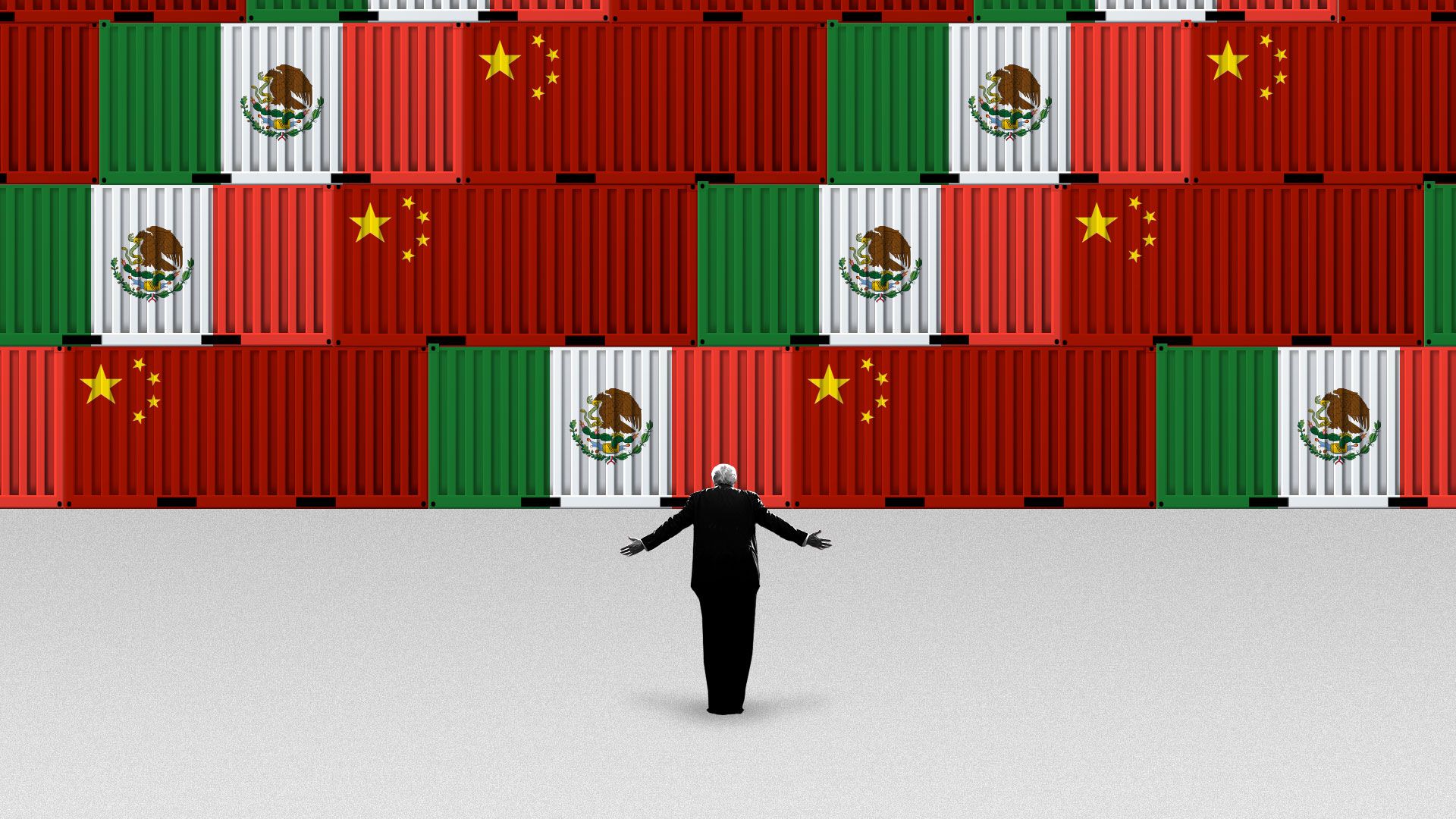Trump's war on global trade
Add Axios as your preferred source to
see more of our stories on Google.

Illustration: Aïda Amer/Axios
The U.S. is in the middle of a full-blown trade war with China, our largest source of imports. There's broad bipartisan consensus that even if the Trump administration's tactics are misguided, China achieved its dominant trade position unscrupulously, being selective as to which international trade norms it would accept.
GoPro will move some production from China to Mexico to avoid Trump tariffs.— Silicon Valley Business Journal headline, May 14
Some broader context:
- America's largest backup source of imports is Mexico, a member in good standing of NAFTA since inception. A natural part of any U.S. trade war with China would normally consist in encouraging American companies to source their products within the North American free trade area, rather than shipping them across the Pacific.
- The White House is in a hurry to ratify USMCA, the successor agreement to NAFTA. The proposed treaty has support from Mexico, which also wants to see it signed quickly.
- In six months, the U.S. could find itself fighting another big trade battle, this time with the EU and Japan.
- In just over a month, the U.S. plans to end India's preferential trade privileges.
The bottom line: This is the worst possible time to start a trade war with Mexico, our most natural ally in any economic confrontation with China. And yet now we seem to be entering an entirely voluntary and preventable two-front war.
- Any tariffs on Mexico will face legal challenges and might never even happen in the first place: Trump is nothing if not mercurial on such matters.
Why it matters: To get embroiled in one major trade war might be considered a misfortune; to find oneself in two of them looks like carelessness. Trump can't end global trade. But by making it much less predictable, he can cripple a key driver of American — and global — economic vitality.
Go deeper: How Trump's Mexican tariffs would impact goods in America
